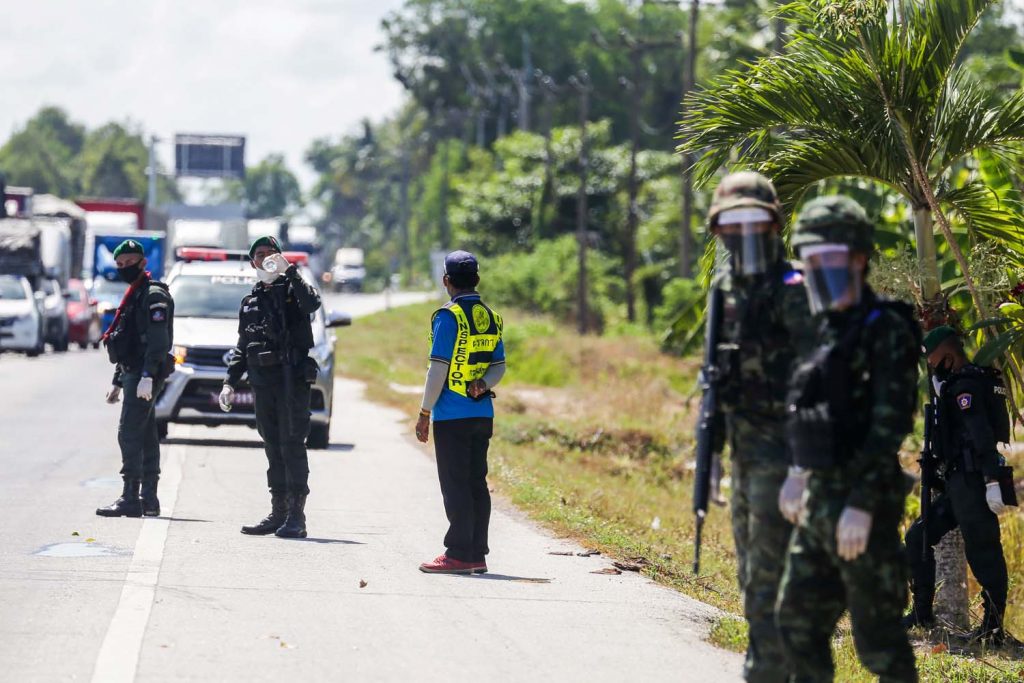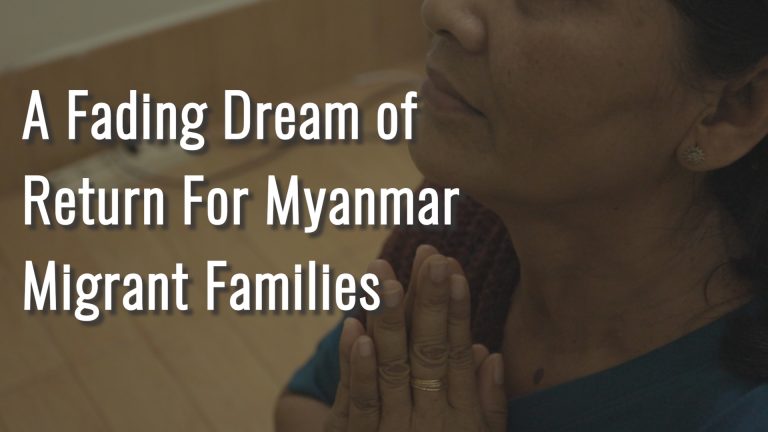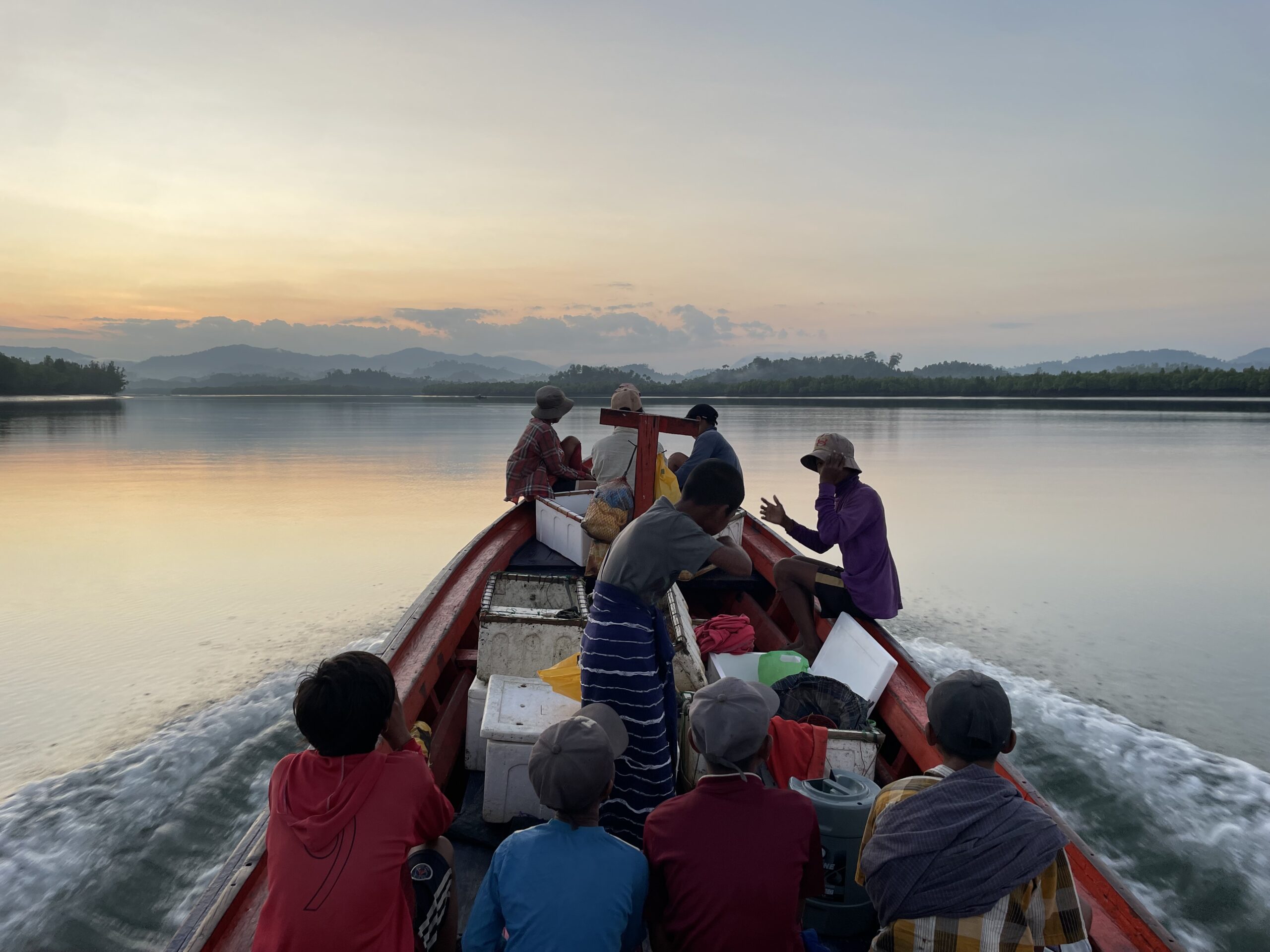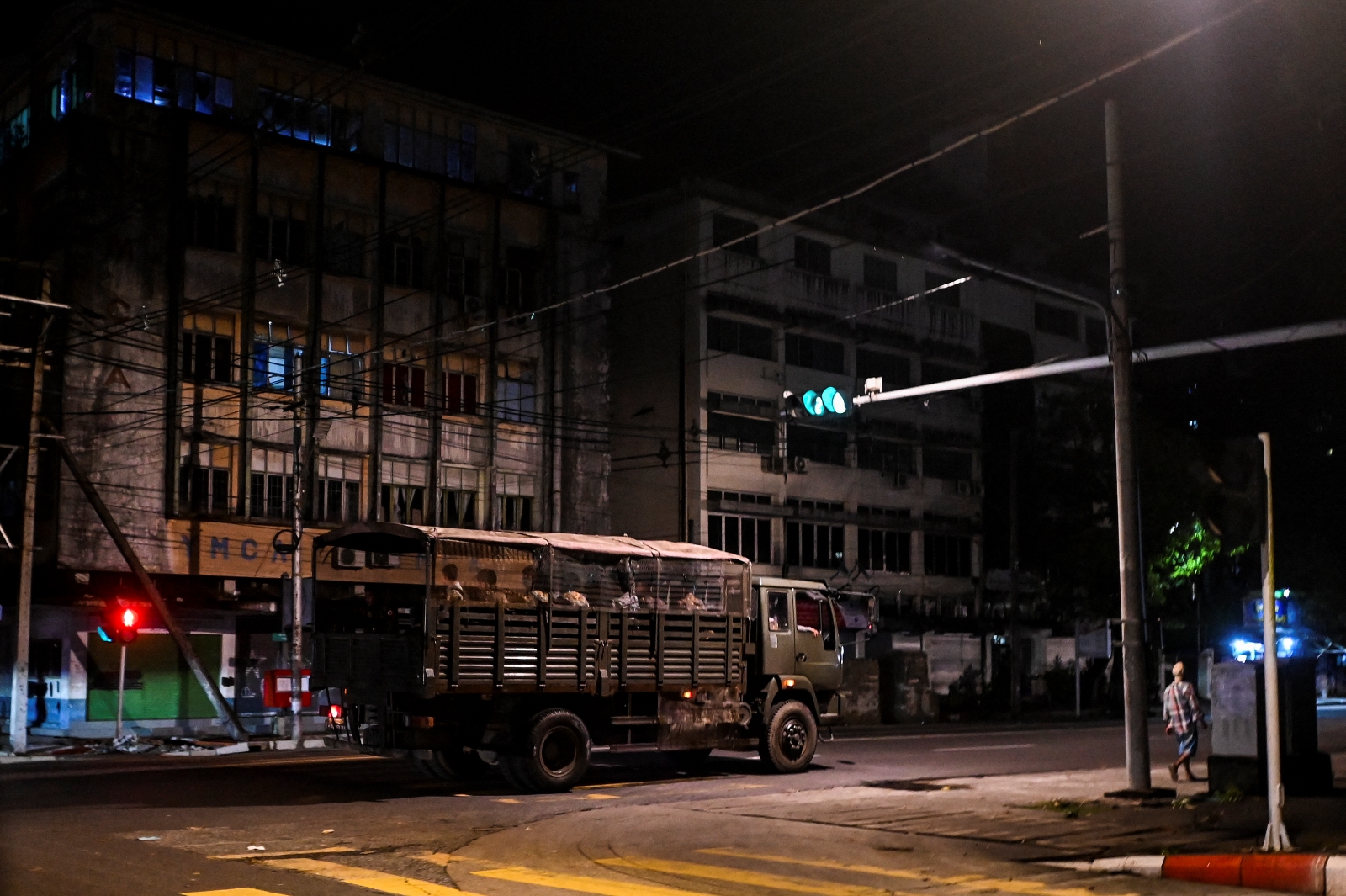A lack of job opportunities in Mon State has turned some migrants to smugglers in order to cross back into Thailand illegally.
By LAWI WENG | FRONTIER
As he sat on his motorbike outside my house explaining his predicament, Nai Wat grew increasingly frustrated.
Since returning to Mon State from Thailand in April, the 48-year-old has been unable to find any work and, like thousands of other returned migrants in Mudon Township, he and his wife were getting desperate. They needed to get back to Thailand and start working again, he said.
But during that conversation on July 15, Nai Wat also revealed that he had a plan: a broker had promised to get him there. They would travel to Tanintharyi Region’s Kawthaung, at the very southern tip of Myanmar, where the broker would take them to the nearby Thai town of Ranong. From there, they would take public buses to a rubber plantation in the south.
Nai Wat spoke as if the broker had the authority to sanction an exclusive travel pass around Thailand, where foreign nationals still face travel restrictions.
As I questioned the premise of the plan, Nai Wat admitted that he, too, had doubts and feared the Thai authorities would arrest them.
Two days later, his fears were realised. Travelling with 13 other Mon migrants, Nai Wat and his wife were detained in Ranong. The broker who had unsuccessfully tried to smuggle them into Thailand told a relative that they would be jailed for two weeks before being deported at the same border. But no one has been able to contact Nai Wat or his wife since they were imprisoned, leaving their relatives concerned for their wellbeing.
The migrant exodus
In late March, Myanmar and Thailand both began to close their borders to stem the spread of COVID-19.
Thailand hosts an estimated four million migrant workers, the bulk of them from Myanmar, and as the country went into lockdown many lost their jobs and their work permits expired.
More than 86,000 migrants have returned from Thailand through formal channels, figures from the International Organisation for Migration show. An unknown number have come back through territory controlled by ethnic armed groups, although security in these areas has been increased and migrants encouraged to return through formal channels.
More than 7,000 migrants have returned to Mon State through formal channels since March 22, IOM says, but the state government puts the number at more than 10,000.
Some have found short-term jobs at local rubber plantations and paddies, filling jobs left empty by internal migrants unable to travel due to domestic travel restrictions put in place to combat COVID-19.
Most, though, have found themselves without work and unsure when they will be able to return.
Ko Khine Tun, 25, is K1 million (US$728) in debt to his relative. He has been considering returning with his wife to a rubber plantation in south central Thailand, but it would involve paying a broker to smuggle them across the border.
In normal times, they could just pay around 2,000 baht ($63) to cross the border legally, including the bus fare, and another 10,000 baht ($324) or so for a work permit. Since the pandemic emerged though it has become impossible to enter Thailand legally, so anyone wanting to return must pay brokers to smuggle them across.
As Nai Wat discovered, the journey back is a risky one. Despite Thailand’s economy relying heavily on low-and semi-skilled migrant workers, the authorities are dishing out harsh punishments to those returning illegally to work.
Thailand-based migrant rights’ advocate U Htoo Chit said they can be jailed for up to 48 days, although migrants are sometimes able to secure early release by paying bribes.
Local media reported a heightened presence of Thai security along the border crossings in Mae Sai, Mae Sot, Ranong and Three Pagodas Pass. On July 22, two territorial defence volunteers who had been disguised as fishermen to catch smugglers arrested 18 Myanmar migrants and a Thai “helper” near Three Pagodas Pass, the Bangkok Post reported.
The migrants said they had paid 7,500 baht ($236) each to be smuggled and were expecting to find work in or around Bangkok, according to the outlet.
On July 18, the Thailand government announced on television that migrants could return if they presented a medical certificate proving they were free of COVID-19 – a test that costs K200,000 ($144) in Myanmar – and must quarantine at a government facility on arrival for two weeks. Each day costs 1,000 baht ($32) and must be paid in full upfront.
Htoo Chit, who runs the NGO Foundation for Education and Development, said that although these fees were the employer’s responsibility some were deducting the cost from migrants’ salaries. For plantation workers who earn 300 baht ($9.50) a day, this could mean two or even three months of wages.
In contrast, leaving Thailand is easy, said Mi Bot, 40, a vegetable vendor from Mudon Township who lives in Kanchanaburi Province about 50 kilometres east of the Myanmar border. Her 12-year-old daughter visited her and her husband in March, shortly before the border closed, and had stayed in Thailand for several months.
But after the Myanmar government announced that schools would begin reopening in late July, the couple decided to send her back, and on July 8 they took her to the mostly Mon town of Sangkhlaburi, close to Three Pagodas Pass. From there, the plan was for the girl’s uncle to escort her back to Myanmar.
But before arriving in Sangkhlaburi they were stopped at a Thai army checkpoint, and the soldiers refused to let them pass, Mi Bot said. A sympathetic officer suggested they hire a broker and ride a boat along the Songkalia River to avoidthe checkpoint and get the car to meet them on the other side.
Mi Bot followed his advice and paid 1,500 baht ($48) to a Thai man, who drove the car through the checkpoint without them, and 3,000 baht ($97) to the boat driver.
“We got out on the riverbank after our boat crossed under the checkpoint bridge and met our driver, who was waiting for us,” she said.
Mi Bot has no intention of joining her daughter in Myanmar, though, as the Thai economy, although hit hard by COVID-19, still offers far better opportunities than in Mon State.
In normal times, many Mon migrants return to Myanmar for the New Year festival in April and head back to Thailand when the rains begin.
This rainy season, the towns and villages of Mon State are unusually crowded, but no one seems busy: people are idle, relying on family to get by and sometimes racking up debts. Everyone is wondering when the pandemic will pass.
There is a restlessness, a lack of hope. Every now and then I see vans coming to collect those who are desperate enough to risk the journey back to Thailand, and hoping to avoid the fate of Nai Wat and his wife.
This article was supported by the X-Border Local Research Network and UK Aid from the UK government. All views expressed are those of Frontier.







